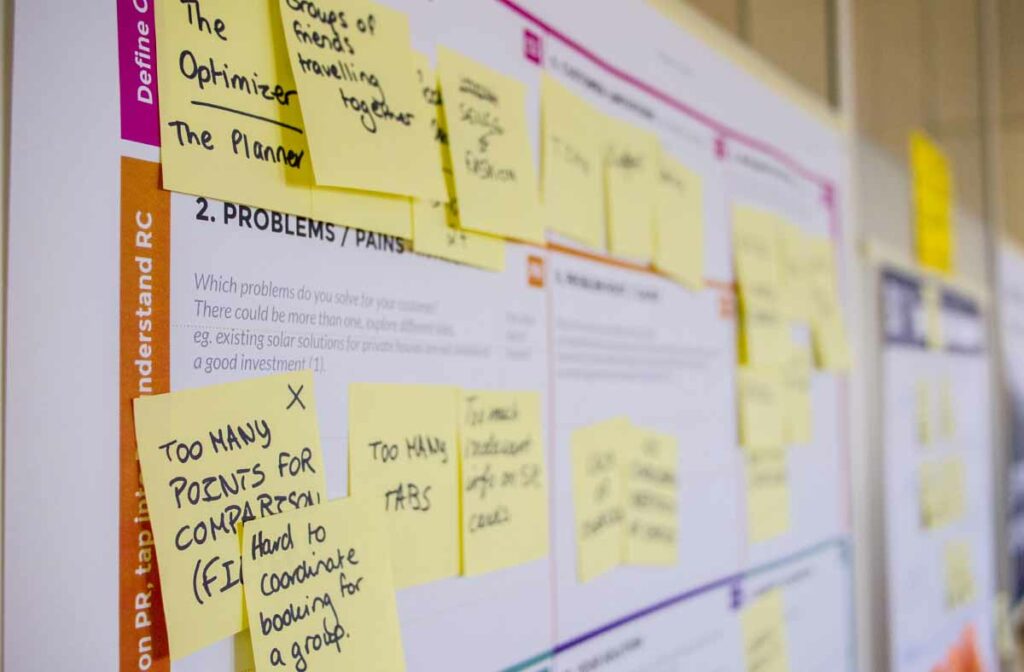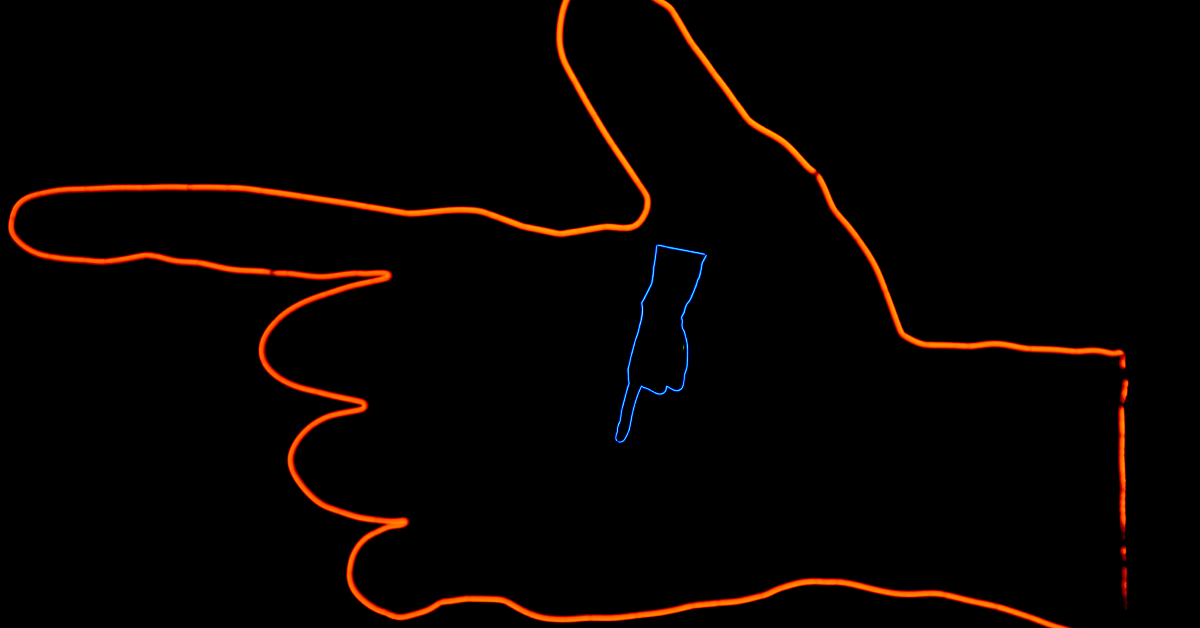UX Design sounds like a dream job, combining creative skills with analytical problem-solving.
Still, if you’re in the field (or thinking about joining it), it’s important to be aware that this industry has its ups and downs—just like other jobs, there are stressful times.
In this article, we’ll chat about why UX designers sometimes feel overwhelmed or experience pressure and provide tips on managing stress without sacrificing creating amazing products.
With these strategies for self-awareness and self-care at your disposal, you can build an incredibly rewarding career as a User Experience Designer.

Are UX Designers Happy In Their Careers? Let’s Find Out…
According to statistics, UX designers tend to rate their career happiness positively, with an average rating of 3.5 out of 5 stars.
This places UX design among the top 30% of careers in terms of happiness.
However, it’s essential to note that like any profession, UX design comes with its own set of challenges and stressors.
While most designers are content with their jobs, it’s important to be aware of the potential for stress and burnout.
What Makes UX/UI Design Stressful?
Lack of company awareness about UX
Some companies value design more than others. Each company will have a different understanding of what design can achieve, and how it goes about achieving it.
Design is important to some companies more than others, and often requires designers to be educators and advocates.
Since the beginning of ‘UX’ time. Designers have had to play the role of educator and advocate – raising awareness of the value design can offer and campaigning for better practices that enable us to do our best work.
This can be stressful because it often feels like a never-ending uphill battle. It can sometimes be one step forward, and two steps back, as you juggle the expectations of various stakeholders who inevitably change over time.
Imposter syndrome
UX Design is a very broad umbrella term for a lot of very specialist skills. From user research, idea generation, storytelling and data analysis. It’s not often that one person is a master of all these skills – which is why teamwork and collaboration is so important.
What this means is, as you excel in one area, you naturally have other areas that need improving. When you compare yourself to other designers who might excel at the things you’re not as experienced in, you can start to doubt yourself and feel like an imposter.
Comparing yourself to others can cause imposter syndrome.
Most of us have felt imposter syndrome at some time, and it can lead to us putting extra pressure on ourselves to perform – leading to increased stress.
On a high-performing team there will no doubt be others you compare yourself to, while you may be an incredible UX Writer, your colleague might excel in their technical skills – designers are a varied bunch and while it’s important to constantly improve, we all have different strengths and weaknesses.
Long hours and tight deadlines
Some workplace cultures expect you to work long hours. They romanticize self-sacrifice and embrace the hustle to be the first person in and the last one out at the end of the day.
Early in your career, it’s easy to get caught up, and in some ways, necessary to advance your skills and gain experience quickly. But it’s not always possible to be productive for 12 hours a day.
In some workplaces, it is expected that you work long hours, even if it’s not always possible to be productive.
Knowledge work can be more draining than physical work, and productivity can decrease when we lose energy leading to fatigue and dissatisfaction.
On top of that, tight deadlines are necessary to stay ahead in competitive markets. It’s difficult for designers to appreciate this because we often value quality over speed.
Challenging problem-solving
No problem exists in isolation, and they very rarely arrive fully defined. Our job is to understand how the different parts of systems interrelate and impact each other.
It takes a lot of work to identify the problem, let alone solve it. Although most of us thrive on this – we love dealing with ambiguity and solving complex problems – sometimes, problems get bigger and more complex the more you look at them.
Problems are rarely isolated and often become more complex as you unpack them.
This can be a challenge, and it’s something you have to get to grips with if you’re ever to be an effective design leader in a fast-paced business.
Constant learning and skill development
Dear lord, does this industry move fast. You can be on top of your game, master of your art, and king of the hill, until a new tool comes in and changes the game.
This is especially difficult if you’re not ‘on the tools’ for a while; maybe you’re focused on User Research, UX Strategy, UX Writing, or Management, only to return and find that the new kids are way ahead of you with a new prototyping or animation software.
In the field of UX, change is constant and specialists must be willing to adapt.
Keeping up with everything can be hard, and letting go of your old talents to adopt new ones is sometimes part of the process.
We can’t all be good at everything, which can be hard to accept when you see yourself as a high performer. UX specialists know that change is a part of growth, and each stage of your career might look different.

How to Avoid Stress as a UX/UI Designer
Choosing the right company to work for
Although a certain amount of stress is necessary to perform well in anything we do. The type of company we work for can have a huge impact, for better or worse.
If our values don’t align with the values of the business, stress is a certainty. If you value experimentation and learning but your team values certainty and predictability, you’ll have a hard time enjoying your work.
If your values don’t align with the values of the company, this can cause a lot of stress.
I know they’re often dismissed as corporate jargon, but when you’re in an interview, ask what the company’s values are and how well they live by them. The sincerity of their answer and whether or not they can state their values will tell you a lot about the organization.
Be wary, though. Many people talk the talk. Make sure they walk the walk and ask them for examples of when they’ve lived by their values.
If your company favors remote work but you’re the type that thrives off of the energy of others, then this too could affect your mental health.
Setting realistic goals and expectations
Humans are generally terrible at predicting how long things will take. We think things will happen much faster than they do. There are so many variables to consider that setting realistic expectations can be tricky.
My personal rule is to estimate the work involved and add 20%. Of course, this is a luxury, but at least you’re negotiating down and not up. Plus, it’s always better to under-promise and over-deliver than make big promises and fall short.
People are bad at predicting how long things will take, so it’s best to add 20% more time than you think something will take.
Sometimes we don’t get to decide how long we want to spend on things, so be realistic with yourself about what quality you can achieve within a short amount of time.
And lean on your manager to create the conditions for good, solid design work. After all, that’s their job.
Prioritizing self-care
I believe we do our best work when we’re happy, well-rested, and enjoying what we do. For me, this means that self-care is a top priority.
What self-care means to you might be different than what it means for me, but generally, it means making time to rest, relax your nervous system, and re-energize so that you can come back stronger and more creative.
Self-care is a top priority in order to maintain productivity.
As mentioned earlier, productivity diminishes as we get tired and stressed, so learn where your boundaries are and have tactics in place for approaching them.
Notice which parts of the process take the most energy, which colleagues lift you up and encourage you, and what time of day are you most productive. Practice mindfulness to intercept your stress levels and start your self-care routine.
Having a good manager
A good manager can make your life a whole lot easier. It’s hard to assess how effective a manager is until you work for them, and even then, things change over time that are out of your control.
But just be mindful of how different management styles make you feel. This actually makes for a good talking point in interviews.
A good manager can make your life easier by having a management style that suits you.
Ask your future manager, “Tell me about your management style, when are you at your best, how do you make sure your team are well supported?” These kinds of questions should spark some interesting conversation that will give you an idea of how your manager tackles problems and protects their team.
Self-awareness and Self-care
We all feel stress differently, and recognizing the signs of stress means you can do something about it.
Personally, I feel stress as an ache in my body, it’s very physical. And one time, no lie, my hearing dropped for two weeks, and after several visits to a specialist, they diagnosed it as stress.
People feel stress differently, some become more productive while others experience physical symptoms.
Other people become more productive when they’re stressed, and their nerves of steel allow them to over-achieve. Unfortunately, that’s the minority. The rest of us have to recognize when to take things slow.
Not only should you practice recognizing what stress feels like, but practice noticing what causes stress. Is it particular parts of the process, certain relationships you have with colleagues, when you aren’t performing as well as expected.
Take note of these triggers and experiment with anticipating and diffusing them.
How to Avoid Stressful UX Roles
When searching for a new role as UX professional, it’s important to consider the size of the team and the manager’s abilities.
A large team with a poor manager can be a recipe for stress and burnout, whereas a small team with a strong leader can create a more positive and productive work environment.
Speaking to former employees can also provide valuable insights into the company culture and management style, helping you to make a more informed decision about whether the role is a good fit for you.
When considering a new role as a UX professional, it’s important to consider the size of the team and manager’s abilities.
Knowing what you want from a role is also crucial in avoiding stressful UX positions. This means being clear about your career goals, values, and what kind of work environment you thrive in.
By identifying what you want from a role, you can better evaluate whether a particular position aligns with your values and aspirations.
Incorporating self-awareness and self-care practices can also be a powerful tool in identifying if a role is a good fit for you.
This means being honest with yourself about your stress triggers, strengths and weaknesses, and what you need to feel fulfilled in your work.
By considering these factors, you can make a more informed decision about whether a particular role is a good fit for you, and whether it aligns with your overall goals and values.
Key Takeaways
- UX/UI design is among the top 30% of careers in terms of happiness, but it can also be a source of stress due to lack of company awareness about UX, imposter syndrome, long hours and tight deadlines, challenging problem-solving and constant learning.
- To avoid stress as a UX/UI designer one should choose the right company to work for by asking what their values are and how well they live by them; set realistic goals and expectations; prioritize self-care; have a good manager who supports their team; practice recognizing signs of stress.
- When searching for new roles it’s important to consider size & management style as well as being clear on career goals & values while incorporating self-awareness & self-care practices in order to make an informed decision if the role is right fit.
- Throughout your UX Career, you’ll find the stress comes from different places. Wether you’re a UX Researcher, or specialize in Visual Design. Every UX Career has it’s challenges. A successful UX Designer will hone the soft skills over time to manage these challenges and lead a good career.


